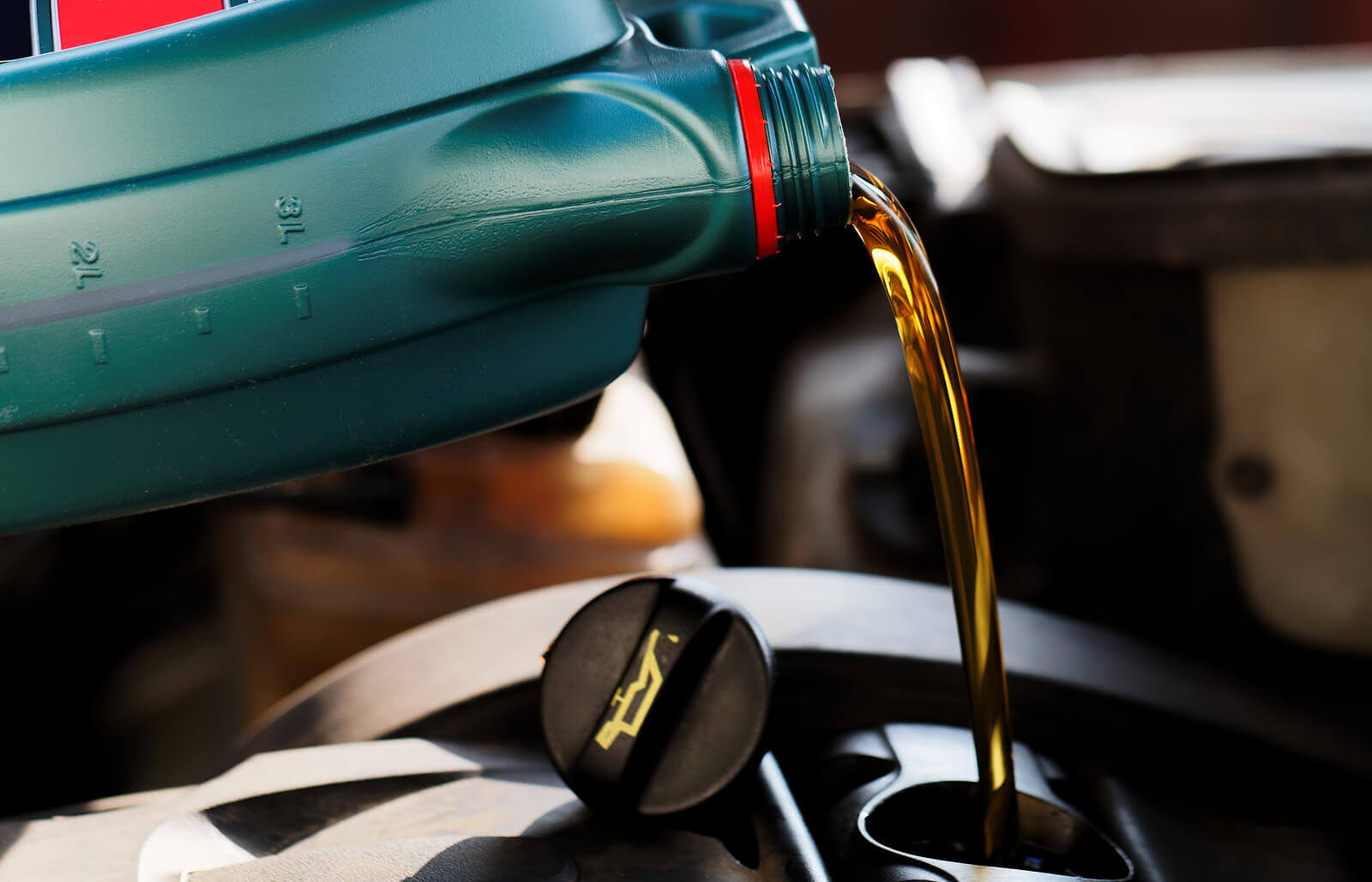Choosing the right engine oil for your car is a vital aspect of vehicle maintenance that can enhance your vehicle’s lifespan and performance.
Using the right oil will help your car last for as long as possible, but using the wrong oil could cause serious damage to the engine.
You must book an oil change regularly to keep the vital parts of your car's engine in peak condition.
Read on and find out which engine oil your car needs, how to check and change engine oil, and what to do if you use the wrong oil.
Page Contents
- What Engine Oil Does My Car Need?
- How Do I Check My Car's Engine Oil?
- How Do You Change Your Car's Engine Oil?
- What Types of Engine Oil are There?
- How Do You Top Up Your Car's Engine Oil?
- How Often Should You Top Up?
- How Often Should You Change Your Oil?
- How Much Oil Does My Car Take?
- When Should You Check Engine Oil Levels?
- How Long Does Engine Oil Last?
- Will Happens If You Use the Wrong Oil?
- FAQs
What Engine Oil Does My Car Need?
Booking an oil change is essential because it ensures that your car receives the right type and quality of engine oil.
A professional mechanic will be able to determine the which oil you need for your car if you aren’t certain which to use.
Using the right brand of engine oil for your vehicle is important, but not nearly as important as the viscosity grade.
Engine oils come in various grades – such as 15W-40 and 10W-30 – which are designed for a specific type of engine.
The two most common grades of engine oil are 5W-30 and 5W-40. 5W-30 tends to be used in newer petrol engines, whilst 5W-40 is better suited to older or diesel engines.
Though both grades are compatible with many models – such as the Ford Focus or VW Golf – other cars may require a different grade, like 0W-30 oil.
Some viscosities are designed for cold climates, whilst others are better suited to warm temperatures.
You can refer to your vehicle’s owner’s manual to find out which grade of engine oil is suitable for your car, the technical specifications (ACEA, API, VW etc), and the recommended viscosity of motor oil for your engine.
Alternatively, you can check the manufacturer’s website for further information.
Sites such as Euro Car Parts also have helpful engine oil checkers which can help you find the right oil for your car.
Be sure to book an oil and filter change to prolong the lifespan of your engine when needed.
How Do I Check My Car's Engine Oil?
Whilst some cars have electronic oil monitors which show the oil level on the dashboard, you may need to get under the bonnet and use the dipstick to do this.
To check your car’s engine oil in just a few minutes, you will need:
- A kitchen towel
- A bottle of engine oil
- A funnel
- Nitrile gloves
Begin by parking your car on level ground and switching it off – a slope might give you an inaccurate oil reading.
The engine should be cool, so you should wait for 5 to 10 minutes to check your oil levels if you have just driven the car. Do not check under the bonnet with the engine still running.
Open your car’s bonnet and find the plastic handle of your dipstick – a long piece of metal with a loop which you can hold.
Remove and clean the dipstick using some kitchen towel.
You will see 2 marks notched into the dipstick for the minimum and maximum oil levels.
Replace the clean dipstick and push it all the way back into its tube.
Pull it back out to check where the oil line is in relation to the notches on the end.
You should add some oil if the level is below halfway between the minimum and maximum marks, and you should definitely add some if it is close to or below the minimum.
How Do You Change Your Car's Engine Oil?
If you check your oil and think it needs changing, you can follow these steps:
- Remove the sump plug and drain oil
- Replace the sump plug once the oil has drained
- Refill the oil to the correct level for your vehicle
Please note that the sump plug can be found on the underside of your car, so you will need to raise it off the ground.
Whilst you can carry out an oil change, this won’t be an effective action unless you have your filter changed too.
Oil flows through an oil filter which catches any debris, dust or bits of metal that the oil has picked up whilst moving through the engine.
The filter can get dirty quickly, and your oil will become less effective as a result, leading to increased fuel consumption and more frequent oil changes.
If you aren’t able to change your oil and oil filter together, book an oil and filter change at a garage near you so that a professional can do this for you.
What Types of Engine Oil are There?
In addition to there being different viscosities, you should know that there are three main categories of engine oil:
- Synthetic
- Mineral
- Part-synthetic
Synthetic oil has a molecular structure that has been modified and refined so that it is durable and performs well. Most engine oil is synthetic.
Mineral oil is more crude and cheaper than synthetic oil to manufacture.
Part-synthetic oil offers much of the performance of synthetic oils, with a much lower price tag attached.
You should also know about the names of different motor oils you could encounter.
An oil with numbers either side of the ‘W’ - for instance 5W-40 or 15w-30 – is known as a multigrade oil and can cope with seasonal temperature variations.
An oil with only a number in front of the ‘W’ or no ‘W’ at all is known as a monograde oil.
Let’s take 5W-40 as an example.
The ‘5’ refers to the viscosity grade at low temperatures. The lower the number, the easier oil will flow through your engine. The higher the number, the thicker the oil – thicker oils will form a protective film across engine parts.
Engine oils marked with a W’ – for winter – are more fluid at colder temperatures, making your car easier to start in winter. Oil that is not marked with a ‘W’ will work better in warmer months.
‘40’ refers to the viscosity grade at high temperatures. A high grade means that the engine is properly protected in warm weather but won’t be as fuel-efficient. A lower number makes the oil more effective at reducing friction and saving you money at the pump.
It's important that you use the exact oil your car needs.
How Do You Top Up Your Car's Engine Oil?

Find the oil filler cap in your engine bay – look for the word ‘oil’ on it or an outline or an oil can.
Then, take the oil filler cap off and pour your oil in carefully using the funnel.
Add the oil in a little at a time so that you don’t accidentally add too much.
Wait a couple of minutes to let the oil run down into the bottom of the engine and then you can recheck the level on the dipstick.
How Often Should You Top Up?
It is recommended that you check and top up your engine oil every three months or 3,000 miles to keep your engine running efficiently.
How Often Should You Change Your Oil?
It is recommended that you change your engine oil once every 5,000 to 10,000 miles or once a year.
How Much Oil Does My Car Take?
How many litres of oil your car needs can range from 3 litres all the way up to 12 litres.
Generally, the larger the engine, the more oil your car needs. You should check your owner's manual to find out exactly how much oil your vehicle requires.
|
Engine Size |
0-1200cc |
1201-1500cc |
1501-2000cc |
2001-2400cc |
2401-3500cc |
3500cc+ |
|
Average quantity of oil used in an Oil and Filter Change |
3.5 litres |
4.9 litres |
5.2 litres |
6.1 litres |
6.4 litres |
8.1 litres |
If you choose a professional mechanic to complete your oil change, they will know the exact amount of oil your car needs - saving you the stress of over or underfilling your engine oil.
When Should You Check Engine Oil Levels?
Even though a mechanic will drain and replace the oil and filter in your car during your annual car service, we strongly recommend that you check your oil every few weeks.
This is especially important before long journeys and before booking an MOT. The garage will need to run the engine to check exhaust emission levels and may refuse to test your car if your engine oil is too low.
You should also think about booking an oil and filter change if you have bought a car with an unclear service history, just to be on the safe side.
How Long Does Engine Oil Last?
How long your engine oil lasts will depend on the car in question and your driving style. You can refer to the owner’s manual for your vehicle to find out the manufacturer’s recommended oil change interval.
Your car may be on fixed interval servicing – likely every 9,000 miles or 12 months.
Some cars are on variable servicing intervals, in which case the recommended oil will be designed specifically to last longer.
Will Happens If You Use the Wrong Oil?
The cost of buying the right oil for your vehicle is a lot less than the cost of rebuilding the engine if the wrong oil causes damage.
The wrong oil won’t properly lubricate the components, leading to metal-on-metal contact and increased wear of vital car parts including the pistons, oil pump and engine bearings.
Your vehicle could additionally experience a reduced fuel economy, oil leaks or even overheat as a result.
Oil leaks can occur as various synthetic engine oils have different flow features. Modern vehicles are designed to use thinner oil whilst older cars or high mileage vehicles use thicker oil to seal and protect the engine.
Engine oil doesn't just lubricate the engine’s parts – it also absorbs the heat produced by the engine. If you use a thicker oil against the manufacturer’s recommendation the oil may not be able to balance the temperature.
You may notice a decrease in fuel economy if you use a thicker oil than your vehicle’s manufacturer recommends. Your engine may need to burn more fuel to overcome the high resistance of moving parts when you use a highly viscous oil.
You may also smell burning as different oils heat at different temperatures, and the engine may not be properly lubricated.
If you notice any of these issues, you must book with a local garage soon and have the oil changed to prevent further damage.
Even if you can operate the vehicle using the wrong engine oil, continuing to do so could cause lasting damage to the engine’s moving parts.
Act as soon as you notice something is wrong and have your vehicle checked and the engine oil replaced to avoid causing irreversible damage to the engine.
FAQs
What Is Engine Oil?
What If You Run Out of Oil?
What Colour Should Engine Oil Be?
Can I Mix Two Different Oils?






